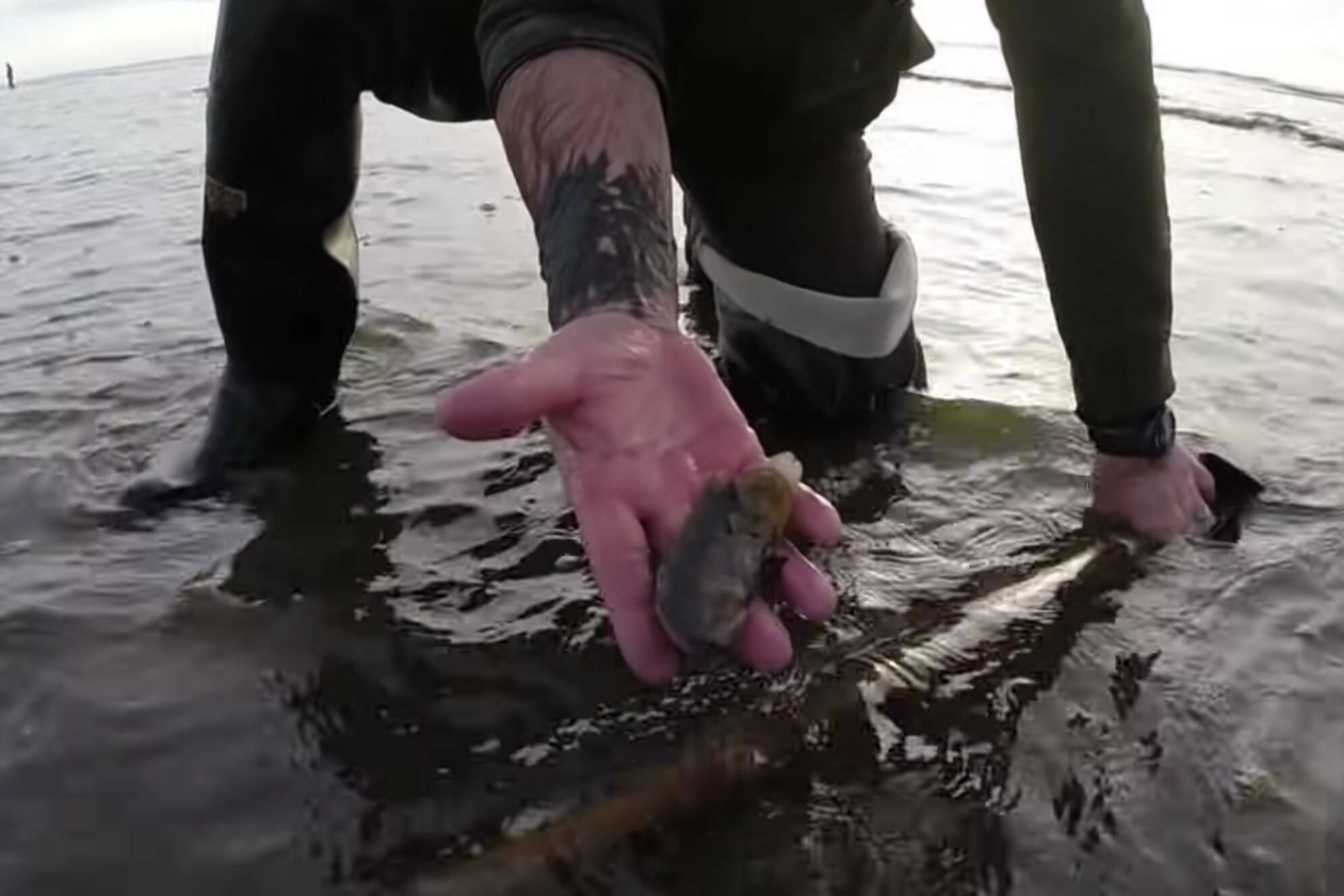The 2022 razor clam harvest scheduled to open this week has been postponed indefinitely due to elevated toxin levels present in the shellfish on Washington beaches.
The toxin, known as domoic acid, can cause stroke-like symptoms or death, and currently exceeds Washington Department of Fish and Wildlife guidelines for safe consumption, according to a department news release.
“Because concentrations of domoic acid in razor clam samples have increased rapidly, we are acting out of an abundance of caution and putting a pause on opening all beaches,” said WDFW coastal shellfish manager Dan Ayres in a news release. “We will work closely with (the Department of Health) and hopefully be able to open beaches sometime down the road.”
Outbreaks in the past have impinged on razor clam seasons before, according to the WDFW website, including canceling the entire season three separate years.
“We’ve struggled with this on and off over the last 20 years,” said Ayres in a phone interview. “It’s nothing new.”
The department will announce future digging opportunities when toxin tests show the levels are safe for harvesting. Ayres said the testing is ongoing continuously and is cautiously optimistic that levels will drop to acceptable amounts, with the possibility of reopening the season for the October harvest dates if toxin levels drop sufficiently.
The domoic acid, produced by algae that benefits from the same conditions that have led to bountiful razor clam harvests, accumulates in shellfish and affects anything with a brain, including other marine mammals such as sea lions, The Daily World reported previously. The potential for irreparable brain damage means WDFW and the Department of Health errs on the side of caution, Ayres said, with amounts above 20 parts per million enough to put the harvests on hold.
“When we open this (season), it’s not impossible to see 5,000 people on a beach,” Ayres said. “There’s no antidote. There’s no turning back. It’s only clams. Let’s take a deep breath.”
The toxin does not affect the razor clams themselves, according to the department website.



